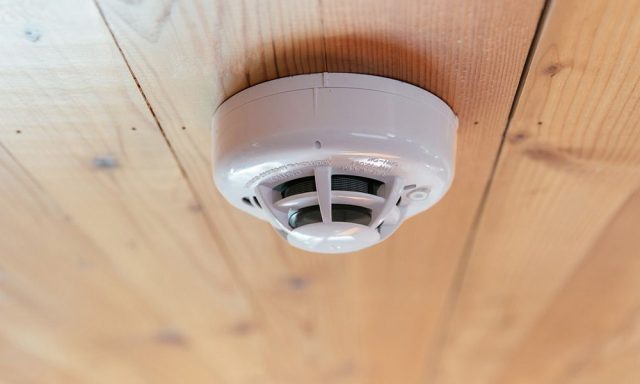Fire alarm systems are not only necessary for your life safety, but they are also a legal requirement as per the UK government. Fire alarms are required in all types of establishments, regardless of size. They save you from property and life damage before it is too late. However, with so many different types of fire alarms available, we understand if you’re unsure which one is right for your business. To assist you, we have compiled a list of fire alarm systems and their applications.
Traditional Alarm Systems
These are also referred to as four-wire alarms. They are the most common and are mostly found in restaurants, shops, and other smaller properties. These alarms work by dividing the entire property into different zones. Each zone is then equipped with multiple detectors. Each of these detectors and call points is hardwired into a zone-specific circuit. These circuits are then hardwired into a control panel shared by all zones. Then, a separate two-core fire-resistant cable is required. These are linked to the bell or sounder, which will sound when a fire is detected.
These fire alarms are also ideal for use in homes. They divide the house into zones based on the number of rooms. As a result, each room becomes a zone. These types of alarm systems are fairly common and usually inexpensive to install. When the detector is activated, the control panel determines which zone it was in. However, the area where the detector was must be manually searched after that.
Fire Alarm System With Two Wires
Two wired alarm systems function similarly to traditional alarm systems. They are also appropriate for smaller spaces. The only difference in their operation is that instead of being connected separately, the call points, detectors, and alarm devices are connected on the same two-wire circuit that returns to the control panel. This means that the panel employs a single circuit to detect sound alarms. Although more expensive to purchase than traditional four-wire alarm systems, they are faster and more flexible. They are also less expensive to install due to the relatively simple system that does not require much.
System of Wireless Fire Alarms
This type of alarm system is ideal for those who have properties that do not permit the installation of wires, such as grade-listed properties. When purchasing this type of fire alarm, keep in mind that it should be fully compliant with both British (BS5839) and European Standards (EN-54). This ensures that they are completely safe to use. They are more expensive to buy because of their hardware, but they are more flexible and faster. When compared to traditional alarm systems, their installation costs are also quite low. Because there are no cables between the call points and the control panels, cable tests are unnecessary.
These alarm systems, however, are powered by batteries, which must be checked regularly to ensure that they continue to function. The cost of these batteries can sometimes be higher than expected (like for bespoke alarms). However, the advantages outweigh the disadvantages. It saves money and time because you won’t have to close off sections of buildings to install them. They are also less difficult to maintain and detect faults.
Analogue Addressable Fire Protection Systems
Analogue addressable fire alarm systems are typically used in larger buildings and areas. They’re also referred to as “intelligent” alarm systems. They can be linked to other addressable systems and are more flexible and advanced than traditional systems. This is because, unlike conventional systems that only detect zones, they provide specific information on the detectors.
These systems are typically more expensive than traditional systems, but they offer greater security and flexibility. Furthermore, they provide precise information about the location of the fire, allowing them to identify it much faster and more accurately.
Each detector in these systems has its unique address, which often results in less wiring than in conventional systems. The control panel receives information from each of the call points or detectors, reporting the location of the fire, fault, smoke, heat, and potential contamination to the user. One of the best features of this system is that it performs a pre-programmed check on each detector to ensure that everything is working properly. The alarm systems then provide information on each of their detectors. They also have a pre-alarm that alerts the owner to check and clean the alarms. This increases safety and ensures that the building is always secure.
You can click here to find out what type of system is best for your business or to have a professional install a fire alarm system.
Follow Techiemag for more Tech News.
Table of Contents





![[Jan 2024] EZTV Proxy | Unblock EZTV | EZTV Alternatives eztv](https://www.techiemag.net/wp-content/uploads/2020/05/eztv-300x194.png)

![How to Delete Facebook Profile – Tutorial [2021] How to Delete Facebook Profile – Tutorial in 2021](https://www.techiemag.net/wp-content/uploads/2021/02/Tutorial-100x75.jpg)
